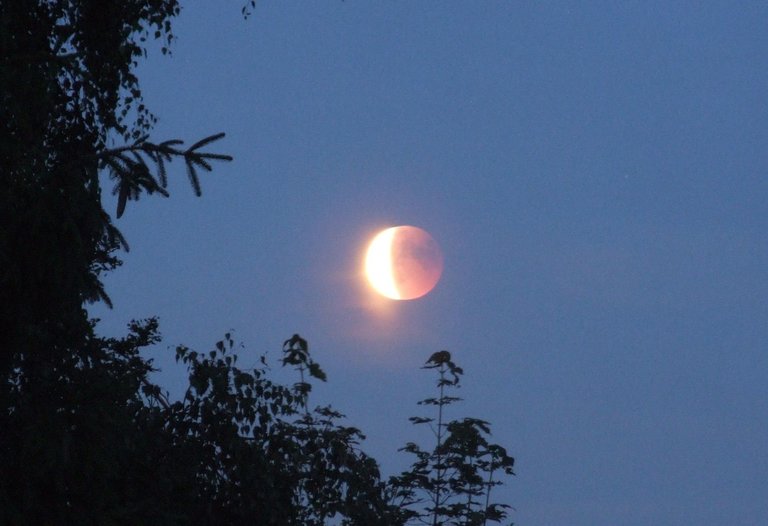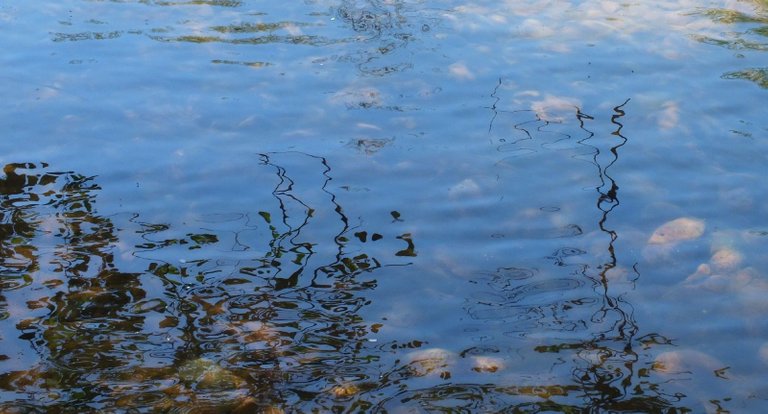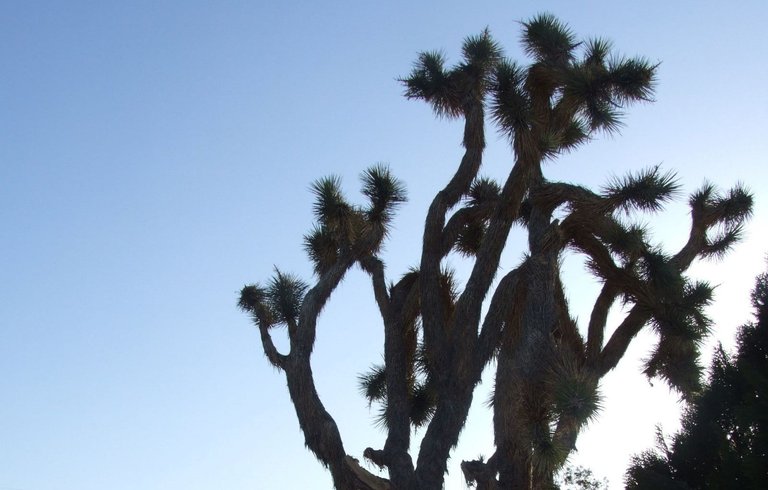The Things We've Learned... and the Myriad Things Yet to Come!
I was looking through a box of old keepsakes from the house I grew up in, including a few things my mother had saved from my room.
One of those things was a map of our solar system, showing the different planets, lined up next to each other, rendered to scale. I thought it was very cool, although Saturn — with its rings — somehow scared me a little.

Partial Lunar eclipse, Denmark 2011
The map has a copyright date of 1972.
At that point, we'd barely set foot on the Moon although the Apollo missions were coming to an end, already.
I was definitely an aspiring "space nerd," already devouring science fiction novels by the dozens!
At that time, it would still be twenty years before we discovered and confirmed the first exoplanet. Up until that point — January 1992 — the idea that there might be planets around other stars was still highly speculative and theoretical, and many still clung to the "unique Earth" paradigm, feeling certain that there was nothing else out there.
30 years later, Five Thousand exoplanets have been identified and cataloged, and we have only covered an impossibly minute portion of our own galaxy. Recent scientific research suggests there might be two trillion galaxies in the observable universe... and "best guesses" places the number of planets in our own galaxy in the billions.
The numbers tend to blow most people's mind... basically meaning that we are not capable of processing the scale we are dealing with.
The first evidence for an exoplanet in another galaxy was brought to light in 2021... so we keep discovering new things.
So, I find myself thinking about only what has been learned in the course of my own lifespan to date. And I find myself speculating on the distinct possibility that these few exoplanets we now know of might be representative of how little we really know... about everything.

Consider, for example, that less than 5% of our planet's oceans have been explored.
Most humans tend to lean towards the egoically arrogant end of the spectrum, at which we think we know far more than we actually do.
I suppose I have always been far more oriented towards exploring the possibilities than getting hung up on the "knowledge pissing matches" I so often watch unfold all around me. To me, it doesn't matter who discovered something — nor whether they were rewarded with a parade and marching band — so much as that they discovered something.
Regardless, I believe we have so much to learn!

By the same token, I also believe that a vast number of things people — scientists, even — currently dismiss as "nonsense" and "impossible" will become commonplace and have common-sense explanations within the next 20, 50, 100, 1000 years.
Consider 3D printed human organs. It sounds like science fiction, but it's already being done in biolabs... although we're probably still 20-odd years from being able to simply print someone a new heart, rather than wait for a transplant donor.
I grew up watching Star Trek, and the idea of their "Food Replicator" was pure science fiction in 1972, but now there are lots of experiments with 3D printed food.
In actuality, I didn't intend for this post to be about these scientific advances so much as to serve as an illustration of the speed with which things in our world is marching forward.
And now we suddenly have AI to help speed up that process.
I don't have that many years left on this planet, but I am sure the next century will take an awful lot of "impossible things" and make them possible.
What do YOU think?
Thanks for visiting, and have a great remainder of your week!
Comments, feedback and other interaction is invited and welcomed! Because — after all — SOCIAL content is about interacting, right? Leave a comment — share your experiences — be part of the conversation! I do my best to answer comments, even if it sometimes takes a few days!

Greetings bloggers and social content creators! This article was created via PeakD, a blogging application that's part of the Hive Social Content Experience. If you're a blogger, writer, poet, artist, vlogger, musician or other creative content wizard, come join us! Hive is a little "different" because it's not run by a "company;" it operates via the consensus of its users and your content can't be banned, censored, taken down or demonetized. And that COUNTS for something, in these uncertain times! So if you're ready for the next generation of social content where YOU retain ownership and control, come by and learn about Hive and make an account!


(As usual, all text and images by the author, unless otherwise credited. This is original content, created expressly and uniquely for this platform — NOT posted anywhere else!)
Created at 2024-02-27 00:30 PST
1088/2346


Human kind has always been quite limited in its acceptance of reality and possibility. The speed at which we discover things tends to indicate that we will know much more than know in little time :-)
I have picked this post on behalf of the @OurPick project! Check out our Reading Suggestions posts! Please consider voting for our Liotes HIVE Witness. Thank you!
Please consider voting for our Liotes HIVE Witness. Thank you!
Everything moves quicker than anyone can ever keep up with. It makes things exciting but a bit tiresome as well, especially being in the tech sector as a software engineer. I have contrast the tech with escaping to the wilderness and the sky as much as I can, or it would drive me crazy. lol. Thanks for the post and thoughts!